Carbon monoxide | Guidance for holiday homeowners
Last Updated on September 20, 2018 by admin
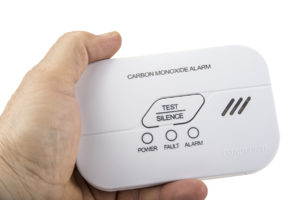
Reported cases of carbon monoxide poisoning, often dubbed the ‘silent killer’, have increased significantly in the past twelve months. As reported in the press around 1,800 properties have been affected in the past year across Devon and Cornwall. This represents an increase of 134% year on year. So what exactly is carbon monoxide and where does it come from? What do you need to do in order to ensure your holiday home is safe from any potential issues?
What is carbon monoxide and where does it come from?
Carbon monoxide is a poisonous gas that has no smell or taste. It is a silent killer that causes around 25 deaths across the UK every year. It’s produced when fuel doesn’t burn properly or completely. Poor fitting and maintenance of appliances such as cookers, boilers and wood burners being the most common causes in households across the UK.
How can it be detected and what are the symptoms of poisoning?
Because the gas has no smell or taste, it’s impossible to know that you’re being subjected to it until symptoms appear or it’s potentially too late. The early symptoms of potential carbon monoxide poisoning can include:
- Headache
- Feeling nauseous (sick) or dizzy.
- You may also feel tired or suffer confusion.
- Some people are physically sick (vomiting) and can show signs of abdominal pain.
- After further exposure individuals have also been known to suffer memory loss, confusion and problems with coordination.
The issue with many of the early symptoms is that they can often resemble everyday aches and pains. For example having a headache or feeling tired after a long day! Many may also resemble the flu; however, the key difference is that CO poisoning will not cause the individual to have a temperature.
What do you need to do as a holiday homeowner?
There are a number of steps that you need to take as a holiday homeowner to ensure the risks of carbon monoxide poisoning are minimised for your guests:
Use approved installation and service engineers
Make sure that all appliances within your holiday home have been correctly installed and are maintained by a professional on a regular basis. Any tradesperson undertaking work in your holiday let should also have the relevant accreditation for their trade. For example, if you’re having a new gas boiler fitted the work should be undertaken by a business that is on the Gas Safety Register:
Fit carbon monoxide alarms in your holiday home
Your cottage should be fitted with carbon monoxide alarms in any area in which fuel is burned. Recent research has shown that 80% of homeowners aren’t sure whether or not their own alarm is working. And many are not aware of the difference in sound from their smoke alarm. For this reason, ensure that your holiday home checks include testing of fire and CO alarms on a very regular basis to ensure they’re both functional.
Have your chimneys and flues regularly swept
Although carbon monoxide poisoning is often associated with gas appliances, blocked chimney flues are one of the most common causes of CO in homes across the UK. If your holiday home has a chimney and working fire it should be swept on a regular basis and particularly after long periods of inactivity. You can find out more about chimney sweeping and safety in our blog here:
Ensure your holiday home is well-ventilated
CO is able to build up in rooms and areas of your cottage that are not well-ventilated. Ensure that your cottage has plenty of ventilation in areas that are burning fuel and that air bricks are not blocked by furniture or any other item.
You can watch a useful video on preventing carbon monoxide poisoning here:
Boshers offer specialist holiday home insurance to owners across the UK. Would you like an insurance quote for your holiday letting property? Give us a call on 01237 429444.
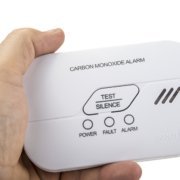

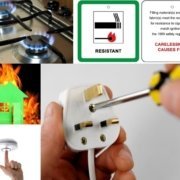
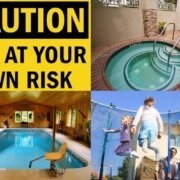

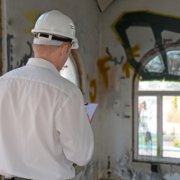


Leave a Reply
Want to join the discussion?Feel free to contribute!